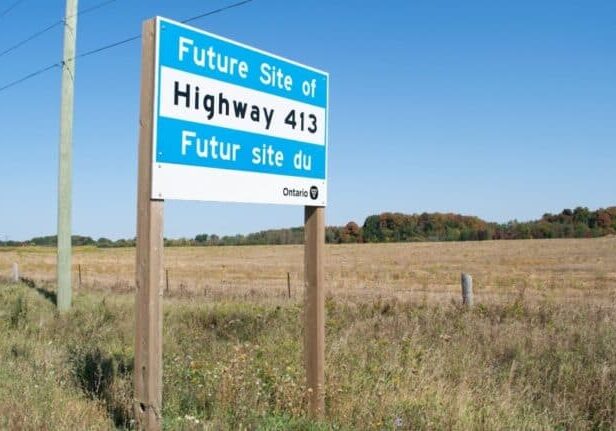Carruthers Creek MZO Request

Dear Minister Clark,
We are writing to express our concern about a request from Pickering Council for a Minister’s zoning order (MZO) that would have a significant negative impact on the Carruthers Creek headwaters and 4,000 acres of prime (Class 1) farmland. We urge you not to grant the requested MZO for reasons outlined below.
Context
On June 29th Pickering Council voted to ask for an MZO to fast-track the Veraine development for 60,000 residents on 4,000 acres of what is primarily Class 1 farmland in Durham Region. This MZO would allow Pickering to bypass the process and outcomes of the Durham Region Municipal Comprehensive Review, which is underway. The Mayor of the Town of Ajax, Shaun Collier, has expressed his opposition to the proposed development. On July 29th, Durham Regional Council also voted not to support the request for an MZO.
Loss of Farmland
Ontario’s farmland is the base of the agri-food sector, the largest economic sector in the province, employing more than 820,000 Ontarians along the supply chain and annually contributing over $39 billion to the province’s GDP. This farmland is a finite resource which must be protected through informed land use planning.
The MZO, if granted, would bypass the municipal planning process and violate the current urban settlement boundary, leading to the loss of 4,000 acres of primarily Class 1 farmland. To put this in perspective, only 0.5 percent of Canada’s agricultural soil is classified as Class 1, and about half of the entire country’s Class 1 soil is found in Ontario. The MZO would lead to land speculation, increased prices of farmland, and loss of agriculture-related businesses, making farming less attractive and eroding agriculture in the area. It would also put additional surrounding farmland at risk from future development as Pickering seeks to maximize the value of the new municipal infrastructure that would need to be installed.
There are significant lands already zoned for residential and employment land development within the boundaries of Pickering and Ajax. There is no need for development of Veraine lands to meet housing or employment land needs.
Impaired water quality and increased flooding
The government has a duty to ensure that its decisions do not impair the quality of drinking water or the health of our watersheds. The MZO, if granted, would jeopardize both. As natural areas and farmland are paved over, high water flows and streambank erosion would increase, carrying sediments and contaminants, including chloride from road salt, directly into the river system.
A draft report by the Toronto and Region Conservation Authority indicates that development in the watershed would have a significant negative impact downstream. The aquatic ecosystem is already under stress, and development in the headwaters would further degrade the ecosystem and worsen existing flooding and erosion issues by an estimated 77 per cent. It would require the Town of Ajax to both retrofit old stormwater management infrastructure and build new infrastructure through increased taxes and/or new stormwater levies or charges.
Species at risk
The MZO, if granted, would threaten the highly endangered redside dace, a small, colourful fish that has disappeared from much of its former range in Ontario due to the degradation of the cool, clear streams that it needs to survive. Carruthers Creek is one of the few places where it still persists. Development is the primary threat to this species as it leads to excessive erosion and sedimentation, altered water temperatures and loss of vegetated streamside buffers. Water quality matters to redside dace as it does to humans. Its continued presence in Carruthers Creek serves as a reminder of what is at stake – the health of our ecosystems and the quality of our drinking water.
Concluding remarks
MZOs were originally introduced to allow the Minister of Municipal Affairs and Housing to make decisions over land that had no official plan; they are still described on the ministry website as “rarely used where municipalities have existing zoning bylaws, but can be used to protect a provincial interest.” This was in fact the case until recently. However, your government has introduced more MZOs in this current term than previous governments introduced in the ten years prior. Many of these MZOs expedite residential development in areas where there is complete and comprehensive municipal land use planning in place. This shows a blatant disregard for the intended purpose of this legislative tool, and sets a dangerous precedent that MZOs may be used to forego the processes that have been put in place to protect Ontario’s finite resources, including agricultural land.
Given the staggering growth in human population forecast for the Greater Toronto Area in the next 25 years, it is critical that the government do its utmost to protect our farmland and remaining natural areas. Using MZOs to bypass municipal planning processes that allow for public and agency consultation is inappropriate and unacceptable.
We would appreciate an opportunity to discuss our concerns with you at your earliest convenience.
Yours sincerely,
Don Ciparis
President, National Farmers Union – Ontario








